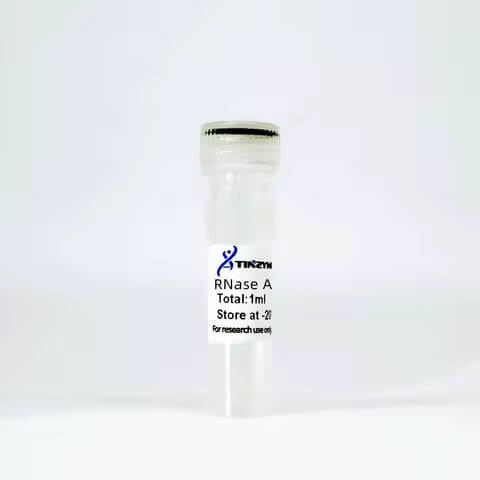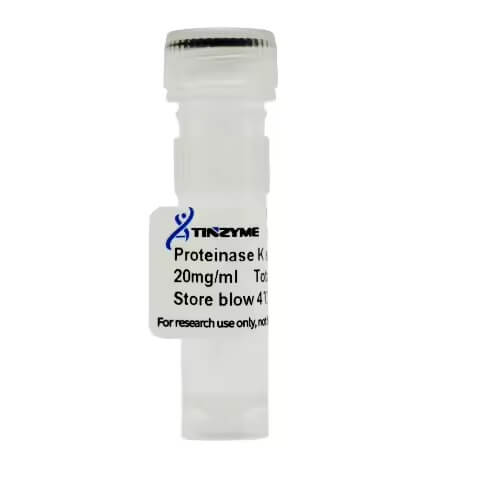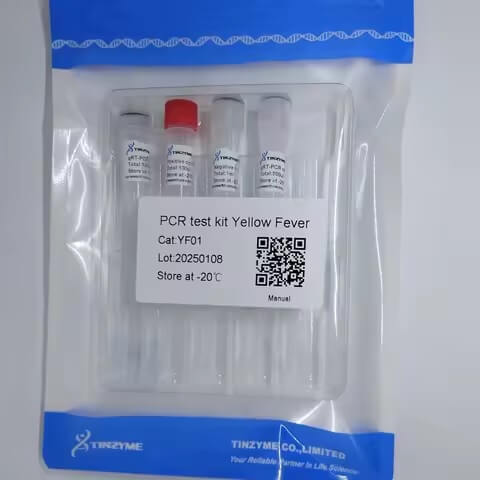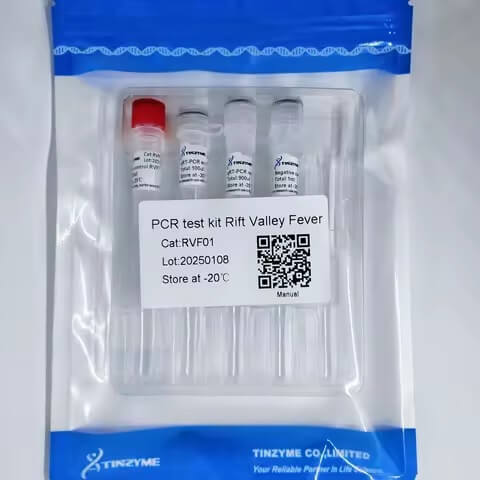
rNTP Set, 100mM Solutions (ATP, CTP, GTP, UTP)
2021-09-01
Hot Start Taq DNA Polymerase
2021-09-01Thermostable M-MLV Reverse Transcriptase (RNase H-)
Supplied by Bulk
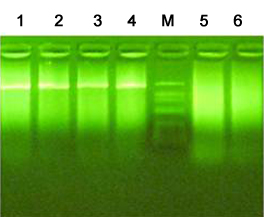
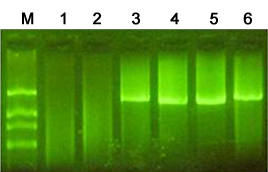
Template: Mouse total RNA, Reverse transcript at 50℃
Lane 1-2: MBS Thermostable M-MLV 200U
Lane 3-4 :invitrogen SuperScript® III
Lane 5-6:Takara m-mlv
Lane M: Marker
Template: Mouse total RNA, Reverse transcript at 55℃
Lane 1-2:Takara m-mlv
Lane 3-4:MBS Thermostable M-MLV
Lane 5-6:200U invitrogen SuperScript® III
Lane M: Marker
Description
Thermostable M-MLV Reverse Transcriptase, encoded by Moloney Murine Leukemia Virus (MMLV RT) is an RNA-dependent DNA polymerase that synthesizes the complementary cDNA first strand from a single-stranded RNA template to which a primer has been hybridized. M-MLV RT will also extend primers hybridized to single-stranded DNA. Second-strand cDNA synthesis can be achieved from some mRNA templates without an additional DNA polymerase. The difference between this to the general M-MLV RT is that the capacity to endure the heat is enhanced. It can remain the 100% activity at 50℃, it can also keep more than 80% activity even at 55℃.
Source
Recombination of E.coli containing Moloney murine leukemia virus reverse transcriptase gene from the clone of Moloney murine.
Concentration: 200U/μl
Component: M-MLV (200U/μl)5×Buffer(with DTT)
Package: Bulk
Features
lack RNase H activity: Weak RNaseH activity High cDNA yield, can get more full-length cDNA.
thermostable: the optimum reaction temperature is 50℃, the highest is 60℃. Can overcome the template RNA secondary structure, and finish the reverse transcriptase experiment smoothly.
wide temperature range: can reverse transcript from 37-60C, with more than 80% of the highest activity at 42℃-55℃ customer can choose the reaction temperature freely.
Strong amplification activity: Gene mutation enhanced the binding capacity of the enzyme and RNA. Increased the amplification speed, can obtain the quality cDNA, suitable for cDNA library construction.
Storage: -20℃
Unit Definition
One unit of MMLV RT catalyzes the incorporation of 1 nmol of dTTP into acid-insoluble material in 10 minutes at 37℃ using oligo(dT)12-18-primed poly(A)n as a template.
Applications
The first-strand cDNA synthesis; RT-PCR.
Storage Buffer
20 mMTris-HCl (pH7.5),200 mM NaCl, 0.25 mM EDTA,0.01% NP-40(v/v),2.5 mM DTT,50%glycerol(v/v).
5X Reaction Buffer
[5×RT Buffer] 250mM Tris-HCl (pH 8.3), 15mM MgCl2,375 mM KCl,50mM DTT.
Recommended Reaction Conditions
The first-strand cDNA synthesis
1) Add the following reagents to a RNase free PCR tube at room temperature add the MMLV RT last.
Oligo dT12-18 (1μg/μl) or random primer (50-250ng) 1μl
Total RNA (10ng-5μg) or mRNA(1-500ng) xμl
dNTP (10mM each) 1μl
DEPC ddH2O (14-x)μl
2) Gently mix and incubate 10 Min at 70℃ then chill on ice for 2-10min.
3) Centrifuge for a few seconds then Put the tube into ice and add the next composition :
5×RT Buffer 4μl
RNasin (40U/μl) 1μl
4) Gently mix and incubate at 50℃ for 2 Min(Oligo dT12-18 or sequence especially primer)or at 25℃ for 10 min for the random primer.
5) Centrifuge for a few seconds. Add 1μl M-MLV RT(200U/μl)Incubate at 50℃ for 50min.
6) Inactivate at 70℃ for 10min then get the cDNA.


